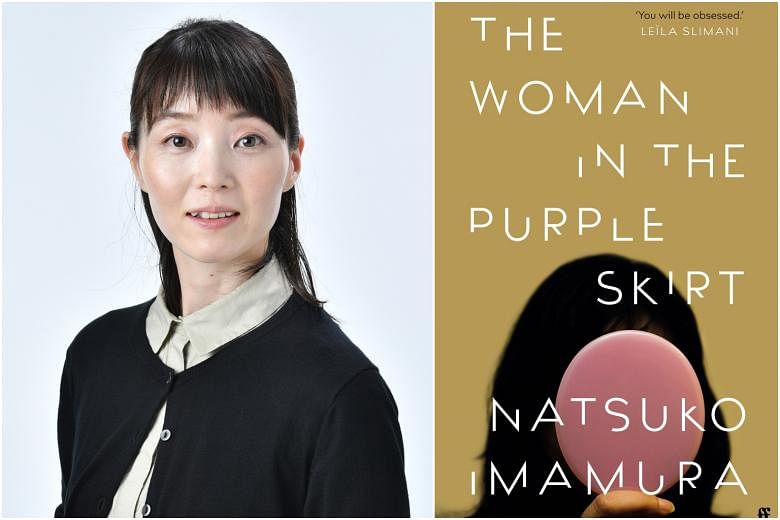The Woman In The Purple Skirt
By Natsuko Imamura, translated by Lucy North
Fiction/ Faber & Faber/Paperback/224 pages/$25.68/Available here
4 out of 5
The Woman in the Purple Skirt is being watched.
She is being watched by the Woman in the Yellow Cardigan, the eccentric narrator of Natsuko Imamura's novel, who has wanted to be friends with her for a long time.
Hovering out of sight, she monitors what the Woman in the Purple Skirt eats, which buses she takes, and even tries - ever so subtly - to help her find a job, leaving shampoo outside her apartment so she can have a clean head of hair during interviews.
In 2019, the year it was first published, The Woman In The Purple Skirt won the Akutagawa Prize, Japan's most prestigious literary award.
This English translation by Lucy North sparkles with a style that is clean, understated and funny. The brand of humour - quirky, acerbic, absurd - has much in common with Sayaka Murata's Convenience Store Woman (2016).
"Whenever I saw her, her hair was its usual mess - dull, dry, sticking out all over the place," the narrator observes.
"I strongly suspected she was washing her hair with soap. I'd once had a part-time job at a shampoo factory, and I still had a fair number of shampoo samples from the huge stash I'd managed to collect. What about getting her to use some of my shampoo?"
The Woman in the Purple Skirt finally lands a job as a hotel housekeeper. Then she has an affair with her boss and gets into some serious trouble, but manages to get out of it in a thrilling escapade orchestrated by her voyeuristic "friend".
Imamura used to work in a hotel as a housekeeper. This might explain her intimacy with some of the things that might go on behind the scenes. For example, doors must be left open when guest rooms are being cleaned, but in the book, the housekeepers lock themselves in so they can eat the snacks from the minibar.
The narrator's observations in the book seem whimsical, cute and occasionally tender. Never does her obsession come across as creepy.
As the book progresses, we realise that the narrator is not just any stalker - she is someone the Woman in the Purple Skirt knows in real life. What, we wonder, does it mean to be close to someone but never be truly seen by them?
The novel brims with that vague, metropolitan loneliness that seems a feature of much contemporary Japanese writing. In the faceless crowd, who else yearns for human connection but does not know quite how to begin?
In a world that was already grappling with a loneliness epidemic before Covid-19, Imamura's book is a timely read.
If you like this, read: There's No Such Thing As An Easy Job (Bloomsbury, 2015, translated 2020, $27.95, available here), Kikuko Tsumura's novel about a woman who walks into an employment agency and decides she wants an easy, mundane job.


